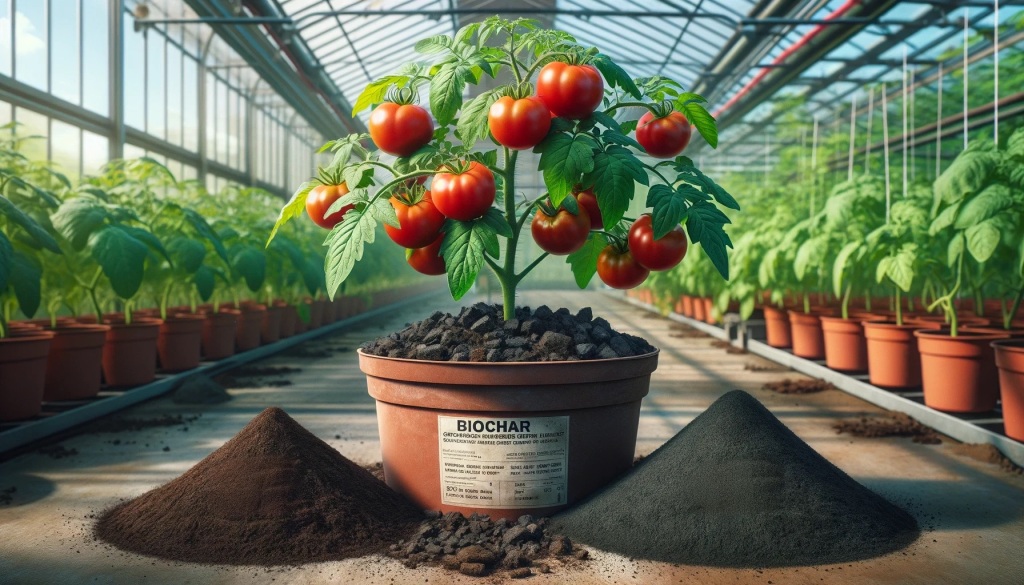
Potential of amino acids-modified biochar in mitigating the soil Cu and Ni stresses – Targeting the tomato growth, physiology and fruit quality. Plant Physiology and Biochemistry. https://doi.org/10.1016/j.plaphy.2024.108711
A recent study published in Plant Physiology and Biochemistry explores how amino acid-modified biochar (BC) can help mitigate the harmful effects of heavy metals, particularly copper (Cu) and nickel (Ni), on tomato plants. Conducted by a team of researchers, the study focused on enriching biochar with glycine (GBC) and alanine (ABC) to enhance its ability to alleviate heavy metal stress and improve tomato growth, physiology, and fruit quality.
Biochar, derived from rice husk, was treated with glycine and alanine to create GBC and ABC. The experiment involved 21 treatments with varying concentrations of simple and amino acid-enriched biochar. Tomatoes grown in soil contaminated with Cu and Ni showed significant improvement in growth and fruit quality when treated with 0.5% GBC. Specifically, GBC helped increase tomato fruit weight by 1.9 times under Cu stress and boosted juice content by 50% under Ni stress compared to untreated plants.
The study revealed that GBC and ABC reduced the translocation of Cu and Ni from roots to shoots and fruits, effectively lowering oxidative damage in plants. The amino acid modifications improved the plants’ antioxidant defense mechanisms, resulting in higher root and shoot dry weights and better overall plant health.
These findings highlight the potential of amino acid-modified biochar as an effective strategy for reducing heavy metal stress in agricultural soils, thereby enhancing crop yield and quality while promoting safer and more sustainable farming practices. This approach could be a valuable tool for farmers dealing with heavy metal contamination in their fields.






Leave a comment